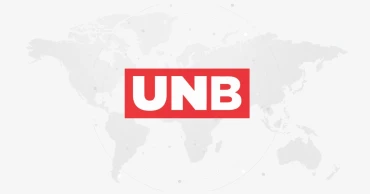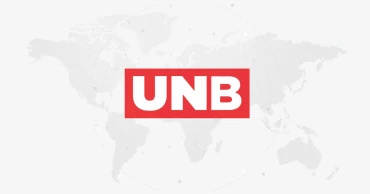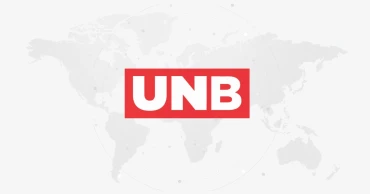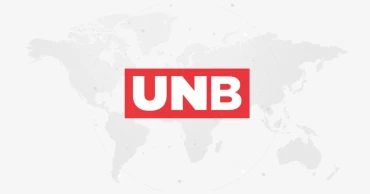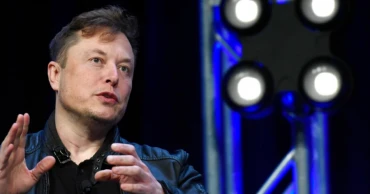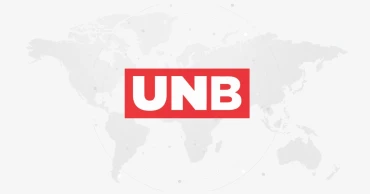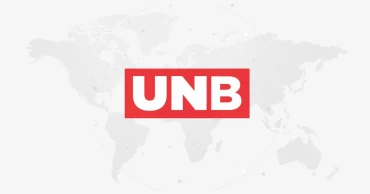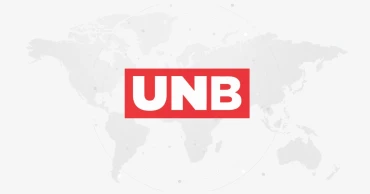Musk
Musk clashes with Polish FM over Starlink in Ukraine; calls him ‘small man’
Musk asserted on X that Ukraine’s entire frontline would collapse without Starlink. Sikorski countered, stating that Poland funds the service in Ukraine and warned that any threat to shut it down would prompt a search for an alternative provider.
Rubio dismissed Sikorski’s remarks, urging him to be grateful. Musk went further, calling Sikorski a “small man.”
The argument ended after Polish Prime Minister Donald Tusk urged allies to treat weaker partners with respect rather than arrogance.
Starlink, a SpaceX initiative, has been crucial for Ukraine’s military communications since the Russian invasion in February 2022. The system, used extensively by Ukrainian forces, includes tens of thousands of terminals, with up to 500 purchased by the U.S. Department of Defense in 2023.
The exchange began when Musk described Starlink as the "backbone of the Ukrainian army," claiming that without it, Ukraine’s frontline would collapse. Sikorski responded that Poland’s Ministry of Digitization funds the service at an annual cost of approximately $50 million. He also criticized the ethics of threatening a country under attack and warned that Poland would seek alternative providers if SpaceX proved unreliable.
Elon Musk and Marco Rubio fight in White House cabinet meeting
Rubio refuted Sikorski’s claims, insisting no one had threatened to cut Ukraine off from Starlink. He added that Ukraine would have already lost the war without the system, with Russian forces potentially reaching Poland’s border.
Musk then directly insulted Sikorski, stating, “Be quiet, small man. You pay a tiny fraction of the cost. And there is no substitute for Starlink.”
Source: BBC
11 months ago
Musk hiring cheaper tech servants from Asia: Alleges Bernie Sanders
US Senator Bernie Sanders has sharply criticised Elon Musk, accusing the tech magnate of exploiting the H-1B visa system to hire lower-wage foreign workers, particularly from India, instead of employing highly skilled American labour.
Sanders, known for his staunch advocacy for workers' rights, has called for significant reforms to the visa programme to protect local jobs.
Speaking on Thursday, Sanders argued that Musk’s reliance on the H-1B programme is motivated more by cost-cutting than by filling a skills gap. "Elon Musk is wrong," Sanders posted on social media platform X.
"The H-1B visa programme’s primary purpose is not to bring in the best and the brightest, but to replace good-paying American jobs with low-wage labour from abroad."
Apple to pay $95 million to settle lawsuit accusing Siri of eavesdropping
The Senator highlighted that companies like Tesla have used the programme to hire workers for roles such as associate accountants and mechanical engineers, positions he believes should first be offered to qualified Americans.
Sanders also noted Tesla's decision to lay off over 7,500 American workers earlier this year while continuing to employ H-1B visa holders.
The debate over the H-1B visa programme has long been contentious, with critics alleging that it undermines American workers by allowing corporations to prioritise cheaper foreign labour. Sanders joins a growing chorus of political voices, including Laura Loomer and Steve Bannon, who have called for a reassessment of the programme.
However, Musk has consistently defended the H-1B visa system, claiming it addresses a critical shortage of highly skilled tech talent in the United States. Musk has pointed out that many engineers who have contributed to the success of his companies, Tesla and SpaceX, entered the US through the programme.
In response to Sanders’ accusations, Musk reiterated his position, stating that the US education system struggles to produce enough top-tier engineering talent.
Entrepreneur Vivek Ramaswamy, a close ally of Musk, echoed these sentiments, calling for an overhaul of the US education system to better prepare the domestic workforce.
Former President Donald Trump also weighed in, expressing support for the H-1B programme. He argued that the US must continue to attract skilled individuals to maintain its economic competitiveness.
Elon Musk sparks speculation with name change on X; this is the name he chose
The controversy over the H-1B programme reflects broader tensions between safeguarding American jobs and ensuring access to global talent in a competitive tech landscape.
As the debate intensifies, policymakers face mounting pressure to strike a balance that addresses both concerns.
Source: With inputs from Indian media
1 year ago
US Virgin Islands seeks to subpoena Elon Musk in Jeffrey Epstein lawsuit
The government of the U.S. Virgin Islands is trying to subpoena billionaire Elon Musk for documents in its lawsuit seeking to hold JPMorgan Chase liable for sex trafficking acts committed by businessman Jeffrey Epstein.
Musk has never been publicly accused of any wrongdoing related to Epstein, who killed himself in 2019 as he awaited sex trafficking charges in a federal jail in Manhattan.
But over the years, there had been unconfirmed speculation — encouraged by Epstein himself — that Epstein had advised Musk on certain business matters.
Also Read: Musk, new Twitter CEO Linda Yaccarino spar over content moderation during on-stage interview
Spokespeople for Musk have denied those reports, but the government of the U.S. Virgin Islands said in a court filing that it believes Epstein may have referred or tried to refer Musk to JPMorgan as a potential client.
The Virgin Islands, where Epstein had an estate, sued JPMorgan last year, saying its investigation has revealed that the financial services giant enabled Epstein’s recruiters to pay victims and was “indispensable to the operation and concealment of the Epstein trafficking enterprise.”
Lawyers for JPMorgan did not immediately return messages seeking comment Monday.
In the past, they have said victims are entitled to justice but litigation attempting to blame the financial institution for Epstein’s actions were legally meritless, directed at the wrong party and should be dismissed.
Also Read: Elon Musk’s Tesla tweet trial delves into investor damages
Authorities alleged that Epstein recruited and sexually abused dozens of underage girls at his mansions in New York and Palm Beach, Florida, in the early 2000s. He had pleaded not guilty.
Lawyers for the Virgin Islands told a federal judge Monday that they haven't been able to locate Musk to serve him with the subpoena.
They asked the court to serve Tesla, his electric vehicle company, instead.
They said they hired an investigative firm to search public records databases for possible addresses for Musk and reached out to one of his lawyers by email, but received no response.
A message sent to a lawyer for Musk seeking comment Monday was not immediately returned.
The subpoena — one of several sent to prominent business figures — sought documents from Jan. 1, 2002, to the present reflecting communications between Musk and JPMorgan or Musk and Epstein regarding Epstein or Epstein’s role in Musk’s accounts, transactions or financial management.
It also sought all documents reflecting or regarding Epstein’s involvement in human trafficking and his procurement of girls or women for commercial sex.
And it sought information about fees Musk might have paid to Epstein or JPMorgan and any documents concerning communications between Musk, Epstein and JPMorgan regarding accounts, transactions or the relationship at JPMorgan.
2 years ago
Musk, new Twitter CEO Linda Yaccarino spar over content moderation during on-stage interview
On Friday, Elon Musk announced that NBC Universal's Linda Yaccarino will serve as the new CEO of Twitter. Yaccarino is a longtime advertising executive credited with integrating and digitizing ad sales at NBCU. Her challenge now will be to woo back advertisers that have fled Twitter since Musk acquired it last year for $44 billion.
Since taking ownership, Musk has fired thousands of Twitter employees, largely scrapped the trust-and-safety team responsible for keeping the site free of hate speech, harassment and misinformation, and blamed others — particularly mainstream media organizations, which he views as untrustworthy “competitors” to Twitter for ad dollars — for exaggerating Twitter's problems.
In April, the two met for an on-stage conversation at a marketing convention in Miami Beach, Florida. Here are some highlights of their conversation:
MUSK AND YACCARINO SPAR OVER CONTENT MODERATION
The Miami discussion was cordial, although both participants drew some distinct lines in the sand. On a few occasions, Yaccarino steered the conversation toward issues of content moderation and the apparent proliferation of hate speech and extremism since Musk took over the platform. She couched her questions in the context of whether Musk could help advertisers feel more welcome on the platform.
At one point, she asked if Musk was willing to let advertisers “influence” his vision for Twitter, explaining that it would help them get more excited about investing more money — "product development, ad safety, content moderation — that's what the influence is."
Musk shut her down. “It’s totally cool to say that you want to have your advertising appear in certain places in Twitter and not in other places, but it is not cool to to try to say what Twitter will do," he said. “And if that means losing advertising dollars, we lose it. But freedom of speech is paramount.”
MUSK REPEATS: NO SPECIAL INFLUENCE FOR ADVERTISERS
Yaccarino returned to the issue a few moments later when she asked Musk if he planned to reinstate the company's “influence council,” a once-regular meeting with marketing executives from several of Twitter's major advertisers. Musk again demurred.
“I would be worried about creating a backlash among the public,” he said. “Because if the public thinks that their views are being determined by, you know, a small number of (marketing executives) in America, they will be, I think, upset about that."
Musk went on to acknowledge that feedback is important, and suggested Twitter should aim for a “sensible middle ground” that ensures the public “has a voice” while advertisers focus on the ordinary work of improving sales and the perception of their brands.
PRESSING ELON ON HIS OWN TWEETS
Musk didn't pass up the opportunity to sell the assembled marketers a new plan to solve Twitter's problems with objectionable tweets, which the company had announced the day before. Musk called the policy “freedom of speech but not freedom of reach," describing it as a way to limit the visibility of hate speech and similar problems without actually removing rule-breaking tweets.
Yaccarino took a swing. “Does it apply to your tweets?” Musk has a history of posting misinformation and occasionally offensive tweets, often in the early morning hours.
Musk acknowledged that it does, adding that his tweets can also be tagged with “community notes” that provide additional context to tweets. He added that his tweets receive no special boosts from Twitter.
“Will you agree to be more specific and not tweet after 3 a.m.?" Yaccarino asked.
“I will aspire to tweet less after 3 a.m.,” Musk replied.
2 years ago
Jury: Musk's 2018 Tesla tweets didn't deceive investors
A jury on Friday decided Elon Musk didn’t defraud investors with his 2018 tweets about electric automaker Tesla in a proposed deal that quickly unraveled and raised questions about whether the billionaire had misled investors.
The nine-member jury reached its verdict after less that two hours of deliberation following a three-week trial. It represents a major vindication for Musk, who spent about eight hours on the witness stand defending his motives for the August 2018 tweets at the center of the trial.
Musk, 51, wasn’t on hand for the brief reading of the verdict but he made a surprise appearance earlier Friday for closing arguments that drew starkly different portraits of him.
Not long after the verdict came down, Musk took to Twitter — the bully pulpit he now owns — to celebrate.
“Thank goodness, the wisdom of the people has prevailed!” Musk tweeted.
Musk’s decision to break away from his other responsibilities to sit in on the closing arguments even though he didn’t have to be there may have had an impact on the jurors, said Michael Freedman, a former federal prosecutor who is now in private practice working for a law firm that has represented celebrities and business executives.“It shows he has a presence,” Freedman said.
Nicholas Porritt, an attorney who represented aggrieved Tesla investors, said he was disappointed after urging the jurors in his closing arguments to rebuke Musk for reckless behavior that threatened to create “anarchy.”
“I don’t think this is the kind of conduct we expect from a large public company,” a downcast Porritt said after discussing the verdict with a few jurors who gathered to talk to him. “People can draw their own conclusion on whether they think it’s OK or not.”
During their discussion with Porritt, the jurors told them they found Musk’s testimony that he believed he had lined up the money from Saudi Arabia’s Public Investment Fund without a written commitment to be credible. They also expressed doubt about whether Musk’s tweeting was the sole reason for the swings in Tesla’s stock price during a 10-day period in August 2018 covered in the case.The trial pitted Tesla investors represented in a class-action lawsuit against Musk, who is CEO of both the electric automaker and the Twitter service he bought for $44 billion a few months ago.
Shortly before boarding his private jet on Aug. 7, 2018, Musk tweeted that he had the financing to take Tesla private, even though it turned out he hadn’t gotten an iron-clad commitment for a deal that would have cost $20 billion to $70 billion to pull off. A few hours later, Musk sent another tweet indicating that the deal was imminent.
Musk’s integrity was at stake at the trial as well part of a fortune that has established him as one of the world’s richest people. He could have been saddled with a bill for billions of dollars in damages had the jury found him liable for the 2018 tweets that had already been deemed falsehoods by the judge presiding over the trial.That determination, made last year by U.S. District Judge Edward Chen, left the jury to decide whether Musk had been reckless with his tweeting and acted in a way that hurt Tesla shareholders.
“It may have not been that difficult for the jury,” Freedman said, “because it sort of became like an up-or-down vote.”
Earlier Friday, Musk sat stoically in court during the trial’s closing arguments while he was both vilified as a rich and reckless narcissist and hailed as a visionary looking out for the “little guy.”
Over the course of a one-hour presentation, Porritt had implored the jurors to rebuke Musk for his “loose relationship with the truth.”
“Our society is based on rules,” Porritt said. “We need rules to save us from anarchy. Rules should apply to Elon Musk like everyone else.”
Alex Spiro, Musk’s attorney, conceded the 2018 tweets were “technically inaccurate.” But he told the jurors, “Just because it’s a bad tweet doesn’t make it a fraud.”
During roughly eight hours on the stand earlier in the trial, Musk insisted he believed he had lined up the funds from Saudi Arabia’s Public Investment Fund to take Tesla private after eight years as a publicly held company. He defended his initial August 2018 tweet as well-intentioned and aimed at ensuring all Tesla investors knew the automaker might be on its way to ending its run as a publicly held company.“I had no ill motive,” Musk testified. “My intent was to do the right thing for all shareholders.”
Spiro echoed that theme in his closing argument.
“He was trying to include the retail shareholder, the mom and pop, the little guy, and not seize more power for himself,” Spiro said.
Porritt, meanwhile, scoffed at the notion that Musk could have concluded he had a firm commitment after a 45-minute meeting at a Tesla factory on July 31, 2018, with Yasir al-Rumayyan, governor of Saudi Arabia’s wealth fund, given there was no written documentation.
In his 90 minute presentation, Spiro emphasized Musk’s track record helping to start and run a list of companies that include digital payment pioneer PayPal and rocket ship maker SpaceX, in addition to Tesla. The automaker based in Austin, Texas, is now worth nearly $600 billion, despite a steep decline in its stock price last year amid concerns that Musk’s purchase of Twitter would distract him from Tesla.
Recalling Musk’s roots as a South African immigrant who came to Silicon Valley to create revolutionary tech companies, Spiro described his client “as the kind of person who believes the impossible is possible.”
3 years ago
Elon Musk defiantly defends himself in Tesla tweet trial
Elon Musk returned to federal court to defend himself against a class-action lawsuit that alleges he misled Tesla shareholders with a tweet about an aborted buyout that the billionaire defiantly insisted Tuesday he could have pulled off, had he wanted.
Musk spent roughly three more hours on the stand during his third day of testimony before being excused by U.S. District Judge Edward Chen. It’s unlikely Musk, 51, will be summoned back to the witness stand during a civil trial expected to be turned over to a nine-person jury in early February.
Musk, who also owns Twitter while continuing to run Tesla, spent much of Tuesday depicting himself, while being questioned by his own attorney, Alex Spiro, as an impeccably trustworthy business leader capable of raising as much money as he needs to pursue his visions. He testily sparred with a shareholder lawyer, Nicholas Porritt, who had raised his ire earlier in the trial.
Read more: Elon Musk rebuffed in bid to move Tesla tweet trial to Texas
At two separate junctures Tuesday under Spiro’s gentle prodding, Musk left no doubt about his contempt for Porritt with a remark expressing doubt that the lawyer was looking out for the best interests of Tesla shareholders. The remarks drew a quick rebuke from the judge and were stricken from the record. “It's inappropriate," Chen at one point admonished Musk.
When he was being challenged by Porritt, Musk purposefully diverted his gaze from the lawyer and delivered his explanations while looking directly at the jurors sitting a few feet to his right. In another instance, Musk asserted, without elaborating, that a question from Porritt wondering if he had ever caused investors to suffer losses contained “falsehoods."
On the flip side, Spiro at one point mistakenly addressed Musk as “your honor" while asking the billionaire how much money he had made for investors during his career. The slipup elicited a moment of levity in the San Francisco courtroom filled with media and other spectators in attendance to listen to Musk, who has become even more famous since completing his $44 billion purchase of Twitter in October.
The current trial hinges on whether a pair of tweets Musk posted on Aug. 7, 2018, damaged Tesla shareholders during a 10-day period leading up to his admission that the buyout he had envisioned wasn’t going to happen. The statements resulted in Musk and Tesla to reach the $40 million settlement without acknowledging any wrongdoing.
In the first of the 2018 tweets, Musk stated “funding secured” for what would have been a $72 billion — or $420 per share — buyout of Tesla at a time when the electric automaker was still grappling with production problems and was worth far less than it is now. Musk followed up a few hours later with another tweet suggesting a deal was imminent.
After those tweets, Musk declared Tesla would remain publicly a few weeks later. A month after that, Musk and Tesla reached a $40 million settlement with securities regulators who had alleged the tweets were misleading.
Read more: Musk says he can't get fair trial in California, wants Texas
Musk has previously contended he entered into the settlement under duress and maintained he never wavered in his belief that he had the money for a deal.
Musk spent most of Tuesday trying to persuade the jurors that there was nothing devious about the two tweets indicating he had lined up the money to take Tesla private as the electric automaker was struggling with production problems and was worth far less than it is now. The judge has already declared the jurors can consider those two tweets to be false, leaving them to decide whether Musk deliberately deceived investors and whether his statements saddled them with losses.
While being steered by Spiro, Musk told jurors he had stated only that he was “considering” a Tesla buyout but never promised a deal would get done. But, Musk said, he thought it important to get the word out to investors that Tesla might be poised to end its eight-year run as a publicly held company.
“I had no ill motive,” Musk said. “My intent was to do the right thing for all shareholders."
While being grilled the day before by Porritt, Musk at times was combative, indignant and exasperated. Through it all, Musk has insisted he locked up financial backing for what would have been a $72 billion buyout of Tesla during 2018 meetings with representatives from Saudi Arabia’s Public Investment Fund, although no specific funding amount or price was discussed.
When presented with texts and email indicating that a representative for the Saudi fund had never pledged the money for a full buyout of Tesla, Musk contended it was nothing more than the words of someone trying to backpedal from a previous pledge made in private conversations.
Not long after Porritt resumed his questioning Tuesday, Musk once again scoffed at the notion that his belief that he had the Saudi funding's financial backing wasn't enough for him to tweet about a potential Tesla buyout.
“We are talking about the kingdom of Saudi Arabia," Musk testified. “They can buy Tesla several times over. This was not a large amount of money for them."
Musk also reiterated earlier testimony that he could finance a Tesla buyout by sharing some of his holdings in SpaceX, a privately held maker of rocket ships that he also started. That would be similar to what he did in the Twitter purchase, which led him to sell about $23 billion of his Tesla stock.
That's something that Musk said Tuesday that he didn't want to do, but that it showed he had the wherewithal to pull together purchases for expensive deals. Musk's ownership of Twitter also has proved unpopular with Tesla shareholders who worry about him being distracted as the automaker faces more competition. Tesla's stock has lost about one-third of its value since Musk took over Twitter.
Despite that downturn, the stock is still worth about seven times more than at the time of Musk's 2018 tweets, after adjusting for two splits that have since occurred. That opened the door for Musk to remind jurors Tuesday that any investor who held Tesla shares in August 2018 would have done “extremely well," had they just held on to the stock.
“It would have been the best investment in the stock market," Musk said.
3 years ago
Elon Musk rebuffed in bid to move Tesla tweet trial to Texas
A federal judge on Friday rejected Tesla CEO Elon Musk's bid to move or delay a trial over a misleading tweet about a potential buyout of the electric automaker, setting the stage for the mercurial billionaire to be thrust into a legal drama amid the turmoil of his Twitter takeover.
The decision by U.S. District Judge Edward Chen came during a hearing held in San Francisco federal court to go over the final details of a trial scheduled to begin Tuesday with jury selection.
Musk's attorneys last week asked Chen to transfer the trial to a federal court in Texas, where Tesla moves its headquarters in 2021, arguing that negative coverage of Musk since his $44 billion purchase of Twitter in October had poisoned the jury pool in the San Francisco Bay Area.
But Chen brushed aside those concerns Friday, and expressed confidence that a panel of impartial jurors could be drawn from a region populated by millions of people. He also noted that a jury was pulled together for trial in the highly publicized criminal trial of former Theranos CEO Elizabeth Holmes, whose transformation from a Silicon Valley star to accused swindler was the subject of an HBO documentary and book before those proceedings began in nearby San Jose, California.
Holmes, 38, is now facing more than 11 years in federal prison of being convicted of investor fraud and conspiracy.
Musk's upcoming trial revolves around a civil lawsuit brought on behalf of Tesla shareholders who allege they were duped by a n Aug. 7, 2018 tweet in which he indicated he had lined up financing for a Tesla buyout — a deal that never materialized and resulted in a $ 40 million settlement with U.S. securities regulators.
Chen already has determined that Musk’s buyout tweet was false, leaving it to a jury to decide whether he acted recklessly by posting it and whether it caused financial harm to Tesla shareholders. After adjusting for two stock splits made since 2018, Tesla’s shares are now worth nearly six times more than at the time of Musk’s tweets about the bogus buyout.
Tesla's stock was even worth even more before Musk decided to buy Twitter for a price that even he conceded was far more than the company was worth. Tesla's shares, currently hovering around $120, have lost nearly half their value since Musk took control of Twitter, partially affecting investor concerns that he is spending too much time running privately held Twitter instead of focusing at the automaker responsible for most of his fame and wealth at a time it's facing tougher competition.
Musk, 51, has said he will step down as Twitter's CEO as soon as he can find a replacement, but has not set a timetable for handing off the reins. To help reduce Twitter's losses and reduce the massive debt stemming from the purchase, Musk has laid off about half of that company's staff and is facing allegations of refusing to pay the rent at some offices.
Read more: Twitter suspends journalists who wrote about owner Elon Musk
Media coverage of mass layoffs and other cutbacks at Twitter were one of the main reasons that Musk's lawyer, Alex Spiro, argued for the trial to be moved or at least delayed until the backlash to the harsh measures died down.
But the lawyers representing Tesla shareholders in the case argued Musk only has himself to blame for any negative perceptions, largely because of his frequent activity on Twitter, the social media platform that he now owns and runs.
“For better or worse, Musk is a celebrity who garners attention from the media around the globe,” the shareholders’ attorneys wrote in their 19-page opposition to the transfer request. “His footprint on Twitter alone is partially to blame for that. If ‘negative’ attention was all that was required to disqualify a jury pool, Musk would effectively be untriable before a jury given his knack for attracting ’negative” coverage.”
After sifting through about 200 juror questionnaires submitted earlier this week, Spiro argued many of them were peppered with derogatory remarks about Musk that underscored how difficult it will be for him to get a fair trial.
Read more: Elon Musk takes over Twitter: what to expect?
Some of those unflattering remarks surfaced during Friday's hearing as Chen pored through the questionnaires in preparation for Tuesday's jury selection. The judge disqualified jurors who he said had variously described Musk as an “idiot" and a “buffoon."
3 years ago
'Will resign as CEO as soon as I find someone foolish enough to take the job': Musk
Elon Musk said Tuesday that he plans on remaining as Twitter’s CEO until he can find someone willing to replace him in the job.
Musk’s announcement came after millions of Twitter users asked him to step down in an unscientific poll the billionaire himself created and promised to abide by.
“I will resign as CEO as soon as I find someone foolish enough to take the job!” Musk tweeted. “After that, I will just run the software & servers teams.”
Read: Over half of 17.5mn Twitter users who voted say Musk should step down as CEO
Since taking over San Francisco-based Twitter in late October, Musk’s run as CEO has been marked by quickly issued rules and policies that have often been withdrawn or changed soon after being made public.
He has also alienated some investors in his electric vehicle company Tesla who are concerned that Twitter is taking too much of his attention.
Some of Musk’s actions have unnerved Twitter advertisers and turned off users. They include laying off half of Twitter’s workforce, letting go contract content moderators and disbanding a council of trust and safety advisors that the company formed in 2016 to address hate speech, child exploitation, suicide, self-harm and other problems on the platform.
Read: Musk's Twitter disbands its Trust and Safety advisory group
Musk, who also helms the SpaceX rocket company, has previously acknowledged how difficult it will be to find someone to take over as Twitter CEO.
Bantering with Twitter followers last Sunday, he said that the person replacing him “must like pain a lot” to run a company that he said has been “in the fast lane to bankruptcy.”
“No one wants the job who can actually keep Twitter alive. There is no successor,” Musk tweeted.
As things stand, Musk would still retain overwhelming influence over platform as its owner. He fired the company’s board of directors soon after taking control.
3 years ago
Over half of 17.5mn Twitter users who voted say Musk should step down as CEO
More than half of 17.5 million users who responded to a Twitter poll created by billionaire Elon Musk over whether he should step down as head of the company had voted yes by the time the poll closed Monday.
There was no immediate announcement from Twitter, or Musk, about whether that would happen, though Musk said that he would abide by the results. Musk attended the World Cup final on Sunday and may be midflight on his way back to the U.S. early Monday.
Musk has taken a number of unscientific polls on substantial issues facing the social media platform, including whether to reinstate journalists that he had suspended from Twitter, which was broadly criticized in and out of media circles.
Musk has clashed with some users on multiple fronts and on Sunday, he asked Twitter users to decide if he should remain in charge of the social media platform after acknowledging he made a mistake in launching new speech restrictions that banned mentions of rival social media websites on Twitter.
The results of the unscientific online survey, which lasted 12 hours, showed that 57.5% of those who voted wanted him to leave, while the remaining 42.5% wanted him to say.
The latest poll followed yet another significant policy change since Musk acquired Twitter in October. Twitter had announced that users will no longer be able to link to Facebook, Instagram, Mastodon and other platforms the company described as “prohibited.”
That decision generated immediate blowback, including criticism from past defenders of Twitter's new owner, that Musk promised not to make any more major policy changes without an online survey of users.
The action to block competitors was Musk's latest attempt to crack down on certain speech after he shut down a Twitter account last week that was tracking the flights of his private jet.
The banned platforms included mainstream websites such as Facebook and Instagram, and upstart rivals Mastodon, Tribel, Nostr, Post and former President Donald Trump's Truth Social. Twitter gave no explanation for why the blacklist included those seven websites but not others such as Parler, TikTok or LinkedIn.
A test case was the prominent venture capitalist Paul Graham, who in the past has praised Musk but on Sunday told his 1.5 million Twitter followers that this was the “last straw” and to find him on Mastodon. His Twitter account was promptly suspended, and soon after restored as Musk promised to reverse the policy implemented just hours earlier.
Policy decisions by Musk have divided users. He has advocated for free speech, but has suspended journalists and shut down a longstanding account that tracked the whereabouts of his jet, calling it a security risk.
But he has changed policies, and then changed them again, created a sense of confusion on the platform about what is allowed, and what is not.
Musk permanently banned the @ElonJet account on Wednesday, then changed Twitter's rules to prohibit the sharing of another person’s current location without their consent. He then took aim at journalists who were writing about the jet-tracking account, which can still be found on other social media sites, alleging that they were broadcasting “basically assassination coordinates.”
He used that to justify Twitter's moves last week to suspend the accounts of numerous journalists who cover the social media platform and Musk, among them reporters working for The New York Times, Washington Post, CNN, Voice of America and other publications. Many of those accounts were restored following an online poll by Musk.
Then, over the weekend, The Washington Post’s Taylor Lorenz became the latest journalist to be temporarily banned. She said she was suspended after posting a message on Twitter tagging Musk and requesting an interview.
Sally Buzbee, The Washington Post's executive editor, called it an “arbitrary suspension of another Post journalist” that further undermined Musk’s promise to run Twitter as a platform dedicated to free speech.
“Again, the suspension occurred with no warning, process or explanation — this time as our reporter merely sought comment from Musk for a story,” Buzbee said. By midday Sunday, Lorenz's account was restored, as was the tweet she thought had triggered her suspension.
Musk was questioned in court on Nov. 16 about how he splits his time among Tesla and his other companies, including SpaceX and Twitter. Musk had to testify in Delaware’s Court of Chancery over a shareholder’s challenge to Musk’s potentially $55 billion compensation plan as CEO of the electric car company.
Musk said he never intended to be CEO of Tesla, and that he didn’t want to be chief executive of any other companies either, preferring to see himself as an engineer instead. Musk also said he expected an organizational restructuring of Twitter to be completed in the next week or so. It’s been more than a month since he said that.
In public banter with Twitter followers Sunday, Musk expressed pessimism about the prospects for a new CEO, saying that person “must like pain a lot” to run a company that “has been in the fast lane to bankruptcy.”
“No one wants the job who can actually keep Twitter alive. There is no successor,” Musk tweeted.
___AP writer Brian P. D. Hannon contributed to this report.
3 years ago
Musk gives remaining Twitter staff till Thursday to go “hardcore” or leave
Elon Musk says Twitter is a software and servers company at its heart and wants employees to decide by Thursday evening if they want to remain a part of the business, according to an email the new owner sent to Twitter workers.
Musk wrote that employees “will need to be extremely hardcore" to build “a breakthrough Twitter 2.0" and that long hours at high intensity will be needed for success.
Musk, who also heads Tesla and SpaceX, said Twitter will be much more engineering-driven, with employees who write “great code” comprising the majority of the team.
Read more:Elon Musk takes over Twitter: what to expect?
The billionaire, who completed the $44 billion takeover of the San Francisco company in late October, has already fired much of its full-time workforce by email on Nov. 4 and is moving to eliminate an untold number of contract jobs for those who are tasked with fighting misinformation and other harmful content.
Musk has vowed to ease restrictions on what users can say on the platform. While he's received criticism, he has tried to reassure companies that advertise on the platform and others that it won’t damage their brands by associating them with harmful content.
Musk has also indicated that he plans to resume Twitter's premium service — which grants blue-check “verification” labels to anyone willing to pay $8 a month - on November 29. The billionaire said in a tweet that the relaunch would take place later this month in an effort to make sure the service is “rock solid."
Musk asked workers to click yes on a link provided in the email if they want to be part of the “new Twitter." He said that employees had until 5 p.m. Eastern on Thursday to reply to the link. Employees who don't reply by that time will receive three months of severance, according to the email.
Read more: 'Be careful what you wish for': Musk discusses Twitter, workload at G-20 forum
“Whatever decision you make, thank you for your efforts to make Twitter successful," Musk wrote.
3 years ago


